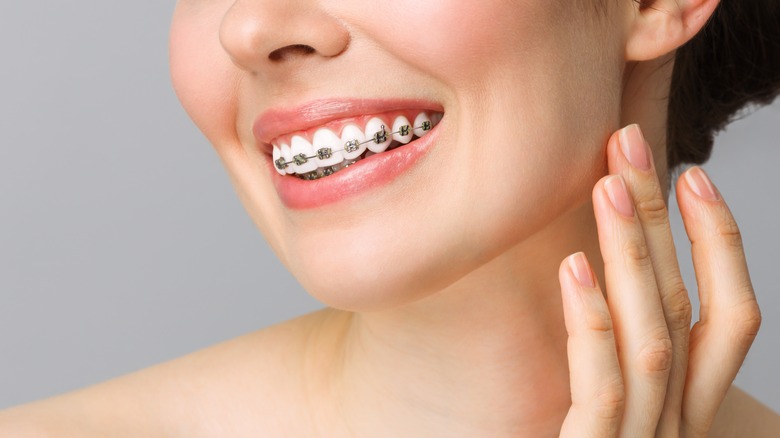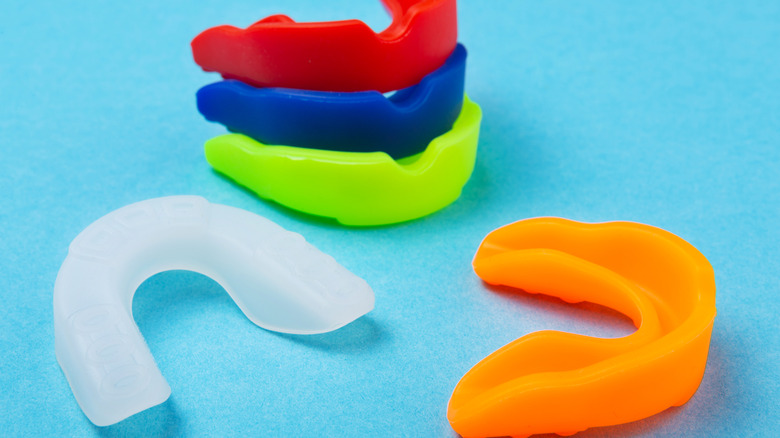Can You Wear A Mouth Guard If You Have Braces?
A dazzling white and perfectly straight smile is a coveted physical feature for many individuals. While there are some people with naturally straight teeth, for many, achieving the perfect bite is something that is only attained after some type of orthodontic treatment. Some individuals with more minor alignment issues can use invisible clear aligners to straighten their smile (via Central Coast Orthodontics). While clear aligners are often the preferred treatment due to their lower profile and ease of use, they are not always the right approach. For individuals with more severe issues, the traditional approach may be required to provide proper treatment of their orthodontic issues.
Braces are used to help treat and correct orthodontic issues such as crooked teeth, misaligned teeth, or teeth that are overcrowded (via WebMD). Traditional braces are made from metal bands and brackets that are adhered to each individual tooth and adjusted and tightened, pulling and shifting the teeth into the desired position. Though most individuals will get braces during their adolescence, it is not uncommon for young adults or even those in middle adulthood to need traditional braces.
Traditional braces can be cumbersome, requiring multiple dental appointments and specialized maintenance across a period of time. Additionally, some aspects of dental care and prevention, like the ability to wear a mouth guard, can be impacted by braces.
Can you wear a guard with braces?
There are two main types of dental devices commonly referred to as "mouth guards." Athletic mouth guards are used during athletic activities or events to help prevent injury to the teeth, mouth, and jaw (via Sporting Smiles). Another device commonly referred to as a mouth guard is one that's used to help protect teeth from damage caused by clenching and grinding behaviors, also known as bruxism (via Pro Teeth Guard).
Both types of mouth guards can be worn while wearing braces; however, there are a few things to consider when choosing a guard. First, it needs to fit in such a way that it does not prevent the braces from aligning the teeth. As braces will move your teeth, your mouth guard should be regularly evaluated for fit. Choosing a remoldable guard is a good option, or you may need to purchase a new guard every few months as your teeth shift (via Pro Teeth Guard).
Another factor to consider is the material. You may wish to choose a remoldable material, such as a boil and bite guard, to provide enough room for the wires and brackets on the braces (via Sporting Smiles). However, these guards are not as protective in sports situations, and also not likely to last very long, so they may need replacing. Additionally with sports, it's important to choose a guard that is somewhat fitted, as a poor-fitting guard can lead to significant injury in the event of collisions.


